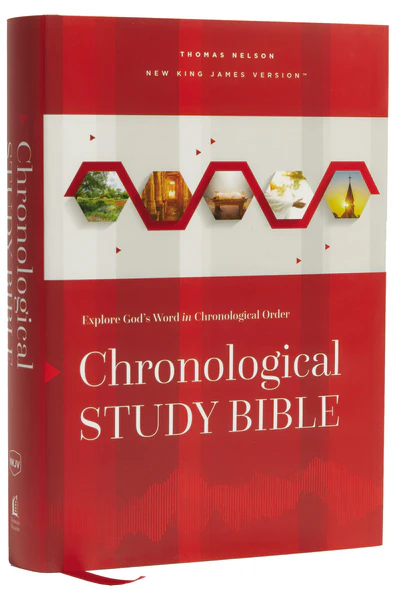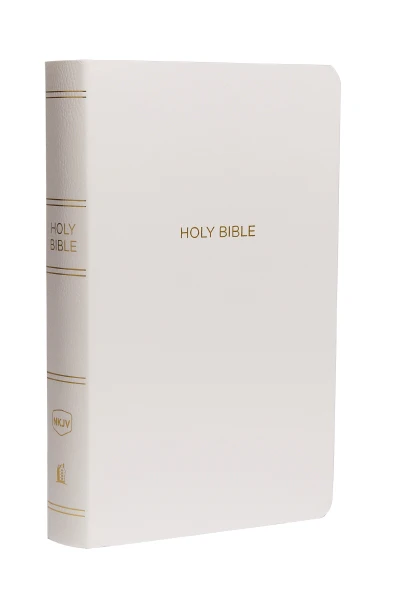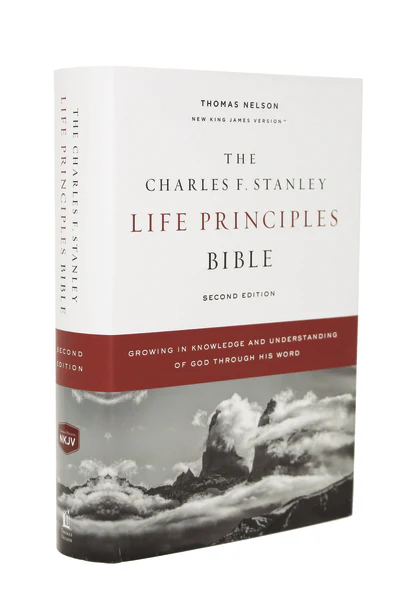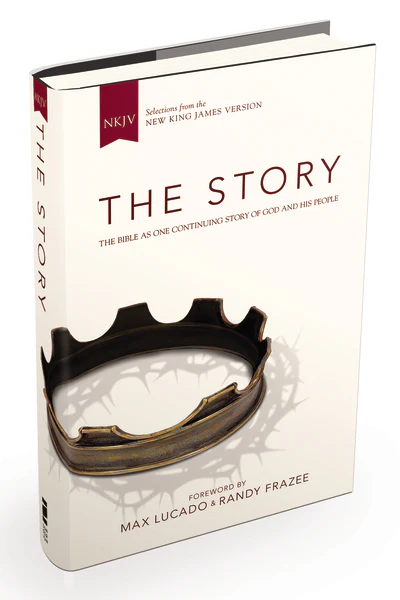2 Kings 15:17-38
New King James Version
Menahem Reigns in Israel
17 In the thirty-ninth year of Azariah king of Judah, Menahem the son of Gadi became king over Israel, and reigned ten years in Samaria. 18 And he did evil in the sight of the Lord; he did not depart all his days from the sins of Jeroboam the son of Nebat, who had made Israel sin. 19 (A)Pul[a] king of Assyria came against the land; and Menahem gave Pul a thousand talents of silver, that his [b]hand might be with him to (B)strengthen the kingdom under his control. 20 And Menahem (C)exacted[c] the money from Israel, from all the very wealthy, from each man fifty shekels of silver, to give to the king of Assyria. So the king of Assyria turned back, and did not stay there in the land.
21 Now the rest of the acts of Menahem, and all that he did, are they not written in the book of the chronicles of the kings of Israel? 22 So Menahem [d]rested with his fathers. Then Pekahiah his son reigned in his place.
Pekahiah Reigns in Israel
23 In the fiftieth year of Azariah king of Judah, Pekahiah the son of Menahem became king over Israel in Samaria, and reigned two years. 24 And he did evil in the sight of the Lord; he did not depart from the sins of Jeroboam the son of Nebat, who had made Israel sin. 25 Then Pekah the son of Remaliah, an officer of his, conspired against him and [e]killed him in Samaria, in the (D)citadel of the king’s house, along with Argob and Arieh; and with him were fifty men of Gilead. He killed him and reigned in his place.
26 Now the rest of the acts of Pekahiah, and all that he did, indeed they are written in the book of the chronicles of the kings of Israel.
Pekah Reigns in Israel
27 In the fifty-second year of Azariah king of Judah, (E)Pekah the son of Remaliah became king over Israel in Samaria, and reigned twenty years. 28 And he did evil in the sight of the Lord; he did not depart from the sins of Jeroboam the son of Nebat, who had made Israel sin. 29 In the days of Pekah king of Israel, [f]Tiglath-Pileser king of Assyria (F)came and took (G)Ijon, Abel Beth Maachah, Janoah, Kedesh, Hazor, Gilead, and Galilee, all the land of Naphtali; and he (H)carried them captive to Assyria. 30 Then Hoshea the son of Elah led a conspiracy against Pekah the son of Remaliah, and struck and killed him; so he (I)reigned in his place in the twentieth year of Jotham the son of Uzziah.
31 Now the rest of the acts of Pekah, and all that he did, indeed they are written in the book of the chronicles of the kings of Israel.
Jotham Reigns in Judah(J)
32 In the second year of Pekah the son of Remaliah, king of Israel, (K)Jotham the son of Uzziah, king of Judah, began to reign. 33 He was twenty-five years old when he became king, and he reigned sixteen years in Jerusalem. His mother’s name was [g]Jerusha the daughter of Zadok. 34 And he did what was right in the sight of the Lord; he did (L)according to all that his father Uzziah had done. 35 (M)However the [h]high places were not removed; the people still sacrificed and burned incense on the high places. (N)He built the Upper Gate of the house of the Lord.
36 Now the rest of the acts of Jotham, and all that he did, are they not written in the book of the chronicles of the kings of Judah? 37 In those days the Lord began to send (O)Rezin king of Syria and (P)Pekah the son of Remaliah against Judah. 38 So Jotham [i]rested with his fathers, and was buried with his fathers in the City of David his father. Then Ahaz his son reigned in his place.
Read full chapterFootnotes
- 2 Kings 15:19 Tiglath-Pileser III, v. 29
- 2 Kings 15:19 Support
- 2 Kings 15:20 took
- 2 Kings 15:22 Died and joined his ancestors
- 2 Kings 15:25 Lit. struck
- 2 Kings 15:29 A later name of Pul, v. 19
- 2 Kings 15:33 Jerushah, 2 Chr. 27:1
- 2 Kings 15:35 Places for pagan worship
- 2 Kings 15:38 Died and joined his ancestors
Galatians 4:1-5
New King James Version
Sons and Heirs Through Christ
4 Now I say that the heir, as long as he is a child, does not differ at all from a slave, though he is master of all, 2 but is under guardians and stewards until the time appointed by the father. 3 Even so we, when we were children, (A)were in bondage under the elements of the world. 4 But (B)when the fullness of the time had come, God sent forth His Son, (C)born[a] (D)of a woman, (E)born under the law, 5 (F)to redeem those who were under the law, (G)that we might receive the adoption as sons.
6 And because you are sons, God has sent forth (H)the Spirit of His Son into your hearts, crying out, [b]“Abba, Father!” 7 Therefore you are no longer a slave but a son, (I)and if a son, then an heir [c]of God [d]through Christ.
Fears for the Church
8 But then, indeed, (J)when you did not know God, (K)you served those which by nature are not gods. 9 But now (L)after you have known God, or rather are known by God, (M)how is it that you turn again to (N)the weak and beggarly elements, to which you desire again to be in bondage? 10 (O)You observe days and months and seasons and years. 11 I am afraid for you, (P)lest I have labored for you in vain.
12 Brethren, I urge you to become like me, for I became like you. (Q)You have not injured me at all. 13 You know that (R)because of physical infirmity I preached the gospel to you at the first. 14 And my trial which was in my flesh you did not despise or reject, but you received me (S)as an [e]angel of God, (T)even as Christ Jesus. 15 [f]What then was the blessing you enjoyed? For I bear you witness that, if possible, you would have plucked out your own eyes and given them to me. 16 Have I therefore become your enemy because I tell you the truth?
17 They (U)zealously court you, but for no good; yes, they want to exclude you, that you may be zealous for them. 18 But it is good to be zealous in a good thing always, and not only when I am present with you. 19 (V)My little children, for whom I labor in birth again until Christ is formed in you, 20 I would like to be present with you now and to change my tone; for I have doubts about you.
Two Covenants(W)
21 Tell me, you who desire to be under the law, do you not hear the law? 22 For it is written that Abraham had two sons: (X)the one by a bondwoman, (Y)the other by a freewoman. 23 But he who was of the bondwoman (Z)was born according to the flesh, (AA)and he of the freewoman through promise, 24 which things are symbolic. For these are [g]the two covenants: the one from Mount (AB)Sinai which gives birth to bondage, which is Hagar— 25 for this Hagar is Mount Sinai in Arabia, and corresponds to Jerusalem which now is, and is in bondage with her children— 26 but the (AC)Jerusalem above is free, which is the mother of us all. 27 For it is written:
(AD)“Rejoice, O barren,
You who do not bear!
Break forth and shout,
You who are not in labor!
For the desolate has many more children
Than she who has a husband.”
28 Now (AE)we, brethren, as Isaac was, are (AF)children of promise. 29 But, as (AG)he who was born according to the flesh then persecuted him who was born according to the Spirit, (AH)even so it is now. 30 Nevertheless what does (AI)the Scripture say? (AJ)“Cast out the bondwoman and her son, for (AK)the son of the bondwoman shall not be heir with the son of the freewoman.” 31 So then, brethren, we are not children of the bondwoman but of the free.
Christian Liberty
5 (AL)Stand[h] fast therefore in the liberty by which Christ has made us free, and do not be entangled again with a (AM)yoke of bondage.
Footnotes
- Galatians 4:4 Or made
- Galatians 4:6 Lit., in Aram., Father
- Galatians 4:7 NU through God
- Galatians 4:7 NU omits through Christ
- Galatians 4:14 Or messenger
- Galatians 4:15 NU Where
- Galatians 4:24 NU, M omit the
- Galatians 5:1 NU For freedom Christ has made us free; stand fast therefore, and
2 Kings 16
New King James Version
Ahaz Reigns in Judah(A)
16 In the seventeenth year of Pekah the son of Remaliah, Ahaz the son of Jotham, king of Judah, began to reign. 2 Ahaz was twenty years old when he became king, and he reigned sixteen years in Jerusalem; and he did not do what was right in the sight of the Lord his God, as his father David had done. 3 But he walked in the way of the kings of Israel; indeed (B)he made his son pass through the fire, according to the (C)abominations of the nations whom the Lord had cast out from before the children of Israel. 4 And he sacrificed and burned incense on the (D)high places, (E)on the hills, and under every green tree.
5 (F)Then Rezin king of Syria and Pekah the son of Remaliah, king of Israel, came up to Jerusalem to make war; and they besieged Ahaz but could not overcome him. 6 At that time Rezin king of Syria (G)captured [a]Elath for Syria, and drove the men of Judah from Elath. Then the [b]Edomites went to Elath, and dwell there to this day.
7 So Ahaz sent messengers to (H)Tiglath-Pileser[c] king of Assyria, saying, “I am your servant and your son. Come up and save me from the hand of the king of Syria and from the hand of the king of Israel, who rise up against me.” 8 And Ahaz (I)took the silver and gold that was found in the house of the Lord, and in the treasuries of the king’s house, and sent it as a present to the king of Assyria. 9 So the king of Assyria heeded him; for the king of Assyria went up against (J)Damascus and (K)took it, carried its people captive to (L)Kir, and killed Rezin.
10 Now King Ahaz went to Damascus to meet Tiglath-Pileser king of Assyria, and saw an altar that was at Damascus; and King Ahaz sent to Urijah the priest the design of the altar and its pattern, according to all its workmanship. 11 Then (M)Urijah the priest built an altar according to all that King Ahaz had sent from Damascus. So Urijah the priest made it before King Ahaz came back from Damascus. 12 And when the king came back from Damascus, the king saw the altar; and (N)the king approached the altar and made offerings on it. 13 So he burned his burnt offering and his grain offering; and he poured his drink offering and sprinkled the blood of his peace offerings on the altar. 14 He also brought (O)the bronze altar which was before the Lord, from the front of the [d]temple—from between the new altar and the house of the Lord—and put it on the north side of the new altar. 15 Then King Ahaz commanded Urijah the priest, saying, “On the great new altar burn (P)the morning burnt offering, the evening grain offering, the king’s burnt sacrifice, and his grain offering, with the burnt offering of all the people of the land, their grain offering, and their drink offerings; and sprinkle on it all the blood of the burnt offering and all the blood of the sacrifice. And the bronze altar shall be for me to inquire by.” 16 Thus did Urijah the priest, according to all that King Ahaz commanded.
17 (Q)And King Ahaz cut off (R)the panels of the carts, and removed the lavers from them; and he took down (S)the Sea from the bronze oxen that were under it, and put it on a pavement of stones. 18 Also he removed the Sabbath pavilion which they had built in the temple, and he removed the king’s outer entrance from the house of the Lord, on account of the king of Assyria.
19 Now the rest of the acts of Ahaz which he did, are they not written in the book of the chronicles of the kings of Judah? 20 So Ahaz rested with his fathers, and (T)was buried with his fathers in the City of David. Then Hezekiah his son reigned in his place.
Footnotes
- 2 Kings 16:6 Lit. Large Tree; sing. of Eloth
- 2 Kings 16:6 A few ancient mss. Syrians
- 2 Kings 16:7 A later name of Pul, 2 Kin. 15:19
- 2 Kings 16:14 Lit. house
John 3:1-21
New King James Version
The New Birth
3 There was a man of the Pharisees named Nicodemus, a ruler of the Jews. 2 (A)This man came to Jesus by night and said to Him, “Rabbi, we know that You are a teacher come from God; for (B)no one can do these signs that You do unless (C)God is with him.”
3 Jesus answered and said to him, “Most assuredly, I say to you, (D)unless one is born [a]again, he cannot see the kingdom of God.”
4 Nicodemus said to Him, “How can a man be born when he is old? Can he enter a second time into his mother’s womb and be born?”
5 Jesus answered, “Most assuredly, I say to you, (E)unless one is born of water and the Spirit, he cannot enter the kingdom of God. 6 That which is born of the flesh is (F)flesh, and that which is born of the Spirit is spirit. 7 Do not marvel that I said to you, ‘You must be born again.’ 8 (G)The wind blows where it wishes, and you hear the sound of it, but cannot tell where it comes from and where it goes. So is everyone who is born of the Spirit.”
9 Nicodemus answered and said to Him, (H)“How can these things be?”
10 Jesus answered and said to him, “Are you the teacher of Israel, and do not know these things? 11 (I)Most assuredly, I say to you, We speak what We know and testify what We have seen, and (J)you do not receive Our witness. 12 If I have told you earthly things and you do not believe, how will you believe if I tell you heavenly things? 13 (K)No one has ascended to heaven but He who came down from heaven, that is, the Son of Man [b]who is in heaven. 14 (L)And as Moses lifted up the serpent in the wilderness, even so (M)must the Son of Man be lifted up, 15 that whoever (N)believes in Him should [c]not perish but (O)have eternal life. 16 (P)For God so loved the world that He gave His only begotten (Q)Son, that whoever believes in Him should not perish but have everlasting life. 17 (R)For God did not send His Son into the world to condemn the world, but that the world through Him might be saved.
18 (S)“He who believes in Him is not condemned; but he who does not believe is condemned already, because he has not believed in the name of the only begotten Son of God. 19 And this is the condemnation, (T)that the light has come into the world, and men loved darkness rather than light, because their deeds were evil. 20 For (U)everyone practicing evil hates the light and does not come to the light, lest his deeds should be exposed. 21 But he who does the truth comes to the light, that his deeds may be clearly seen, that they have been (V)done in God.”
Read full chapterScripture taken from the New King James Version®. Copyright © 1982 by Thomas Nelson. Used by permission. All rights reserved.
Bible Gateway Recommends






